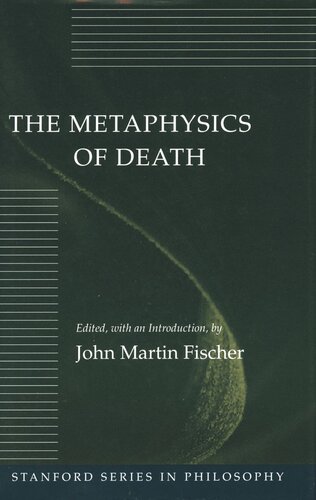

Most ebook files are in PDF format, so you can easily read them using various software such as Foxit Reader or directly on the Google Chrome browser.
Some ebook files are released by publishers in other formats such as .awz, .mobi, .epub, .fb2, etc. You may need to install specific software to read these formats on mobile/PC, such as Calibre.
Please read the tutorial at this link: https://ebookbell.com/faq
We offer FREE conversion to the popular formats you request; however, this may take some time. Therefore, right after payment, please email us, and we will try to provide the service as quickly as possible.
For some exceptional file formats or broken links (if any), please refrain from opening any disputes. Instead, email us first, and we will try to assist within a maximum of 6 hours.
EbookBell Team

4.0
36 reviewsThis collection of seventeen essays deals with the metaphysical, as opposed to the moral issues pertaining to death. For example, the authors investigate (among other things) the issue of what makes death a bad thing for an individual, if indeed death is a bad thing. This issue is more basic and abstract than such moral questions as the particular conditions under which euthanasia is justified, if it is ever justified. Though there are important connections between the more abstract questions addressed in this book and many contemporary moral issues, such as euthanasia, suicide, and abortion, the primary focus of this book is on metaphysical issues concerning the nature of death: What is the nature of the harm or bad involved in death? (If it is not pain, wha is it, and how can it be bad?) Who is the subject of the harm or bad? (if the person is no longer alive, how can he be the subject of the bad? An if he is not the subject, who is? Can one have harm with no subject?) When does the harm take place? (Can a harm take place after its subject ceases to exist? If death harms a person, can the harm take place before the death occurs?) If death can be a bad thing, would immorality be a desirable alternative? This family of questions helps to fram ethe puzzle of why—and how—death is bad. Other subjects addressed include the Epicurean view othat death is not a misfortune (for the person who dies); the nature of misfortune and benefit; the meaningulness and value of life; and the distinction between the life of a person and the life of a living creature who is not a person. There is an extensive bibiography that includes science-fiction treatments of death and immorality.